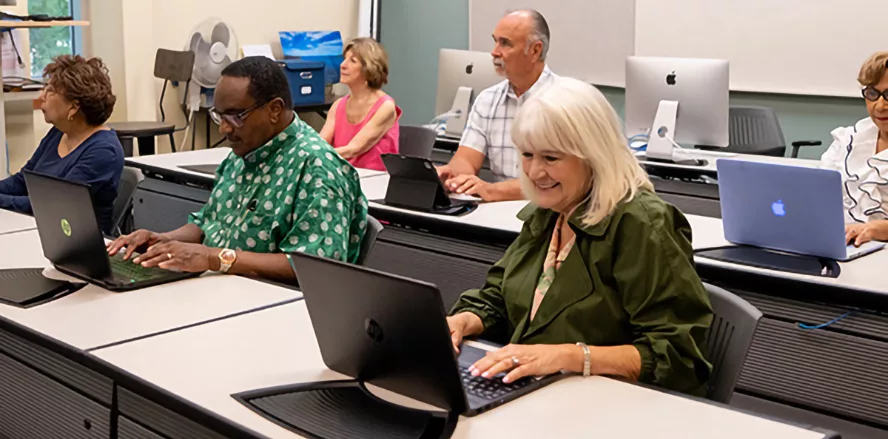
Learning new technologies can create challenges for many mature adults. Technologies like artificial intelligence challenge these novice learners to learn faster than ever. When it comes to AI, learning about it is the first step to being able to recognize it and ultimately use it in daily life.
Groups nationwide are trying to learn more about AI, specifically the generative AI tools that have hit the market this year. Even the U.S. Senate has recognized the need for accurate information about the state of this technology. To that end, Congress recently held an AI forum for the world’s top executives. Republican Sen. Mike Rounds of South Dakota and Democrat Sen. Martin Heinrich of New Mexico headed the committee for this forum. The most significant question: “What’s the threshold at which you start to regulate?”
Although the symposium didn’t answer the question about regulation, it did give the leaders in this new technology an opportunity to explain their goals, intentions, and even some of their fears to lawmakers. The White House expects to release an executive order on AI this year.
In Dallas, seniors can learn about AI from local universities or with groups at CC Young’s The Point. Daphne Lee is the technology director at The Point and conducts classes specifically for seniors on all kinds of technology, from Apple Watches to AI.
According to Lee, seniors are afraid that technologies driven by AI will take over and tell them things that aren’t true. In her classes, her goal is to move seniors from “afraid to ahh.” As a former employee of EDS and a longtime technology advisor to mature adults, Lee has had her highest-class attendance around this topic.

The goal of AI Training: Move seniors from ‘afraid to ahh’
Lee’s classes have a curriculum that provides adult learners with the information they want when they are ready to use it. She tackles AI as “a vast array of technology,” explaining its usages, the key players in the landscape, and its downfalls.
When asked what AI tools she uses and teaches about, Lee named ChatGPT, the first generative AI tool created by OpenAI, and Google Bard, the latest generative AI capability introduced by Google.
She said she favors Bard because it uses more recent information (ChatGPT only uses information through 2021) and organizes information better.
Using generative AI tools gives Lee and her students a new kind of productivity. She illustrated the point by saying that she used Google Bard to write an article that once took 10 hours. With her AI companion tool, it now takes two. Seniors are also learning to use these tools practically, such as constructing thank you or condolence notes.
Other practical uses include:
- Finding information on managing pain.
- Mapping out travel plans.
- Creating menus.
- Decorating or managing finances.
Like everyone else, seniors worry about the bias and misinformation that AI tools can produce.
Lee stresses that you must find and compare the sources you trust with the content created.
For example, her go-to sources are Tristan Harris, the Center for Humane Technology co-founder and a prominent advocate for social media regulation, and the Wall Street Journal. “It takes a village to understand what is happening,” she said.
Exploring technology can be daunting even for those whose career has been in this field.
The trick is to keep learning how to harness technology and how you can use it to enhance your life.
The first step is to start by learning about it.





